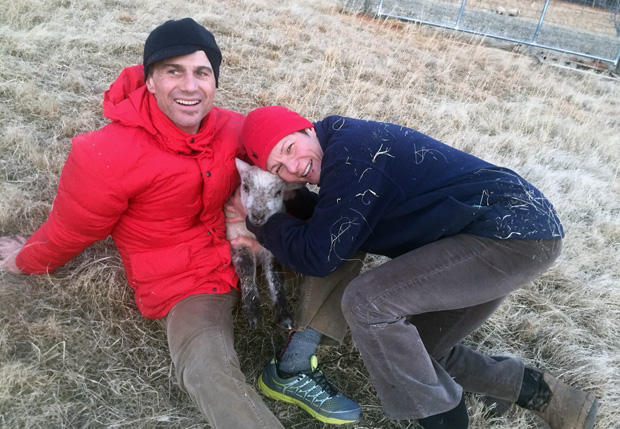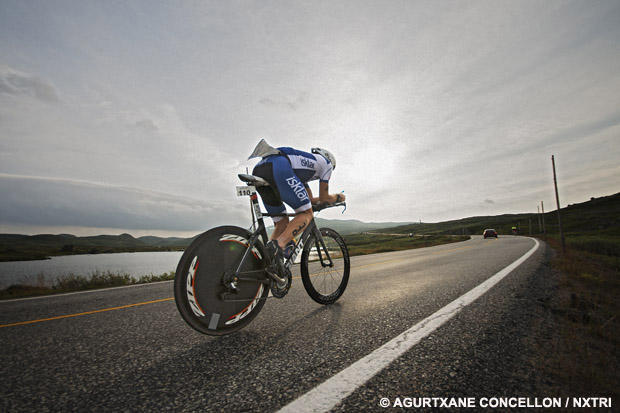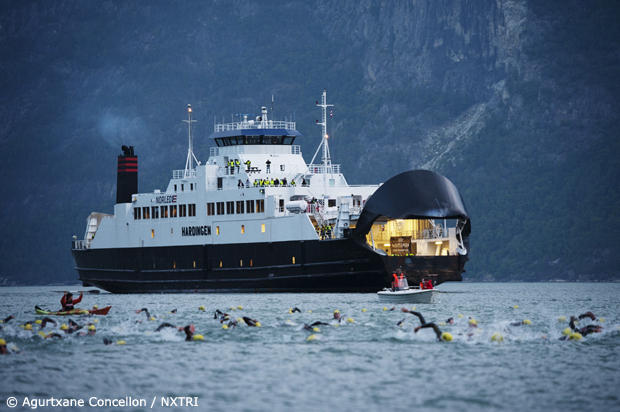The man who loves challenges
Slovakian born Jan Kriska is a North Carolina resident who has finished Norseman, ÖTILLÖ, Arrowhead 135, Mountain Masochist 50, Tor de Geants among many other challenging running or multi sport events, but word has it that he does not have a tattoo to tell the world about. This physician and family man also has a farm and raises a variety of sheep, goats and pigs and I coerced him to chat with me about his activities.
Slowtwitch: Jan, it is great to hang out. Is all well with you?
Jan Kriska: Oh yes, and maybe we can have the chat we first talked about half a year ago.
ST: Oh no, you are you calling me out. Was it really that long?
Jan: Well we first talked about it half a year ago or maybe even longer. But I guess it was about last September.

ST: I think there is a saying about good things coming to those who wait – patiently.
Jan: Absolutely, but I actually don’t think I am that important to warrant an interview. But maybe you have little else to write about right now.
ST: That is not the case and I very much believe you are an interesting person to chat with. In my mind you are not a sheep who simply follows the herd. You go out and find unique challenging events and I am curious when that started.
Jan: It started back in 2007 when I did mostly triathlons and I was just trying to do the local races, do Ironman events and ended up doing the same races over and over. I found myself to be training and training and actually hating it. I was getting older and noticed the technology around me advance at a rapid pace, but only having minimal gains personally. I realized also that it took a lot of time from my family and I tried to convince myself that I liked it – but didn’t. I then found a few alternative triathlons, and they were not about time and distance, but challenging in term of terrain and beautiful, and that changed my interest. It is all about how challenging it is, and how fast it can be done is not very important to me.
ST: But do these challenging events not also take time from your family?
Jan: I backed off tremendously and switched from triathlon to trail running. When I got ready for an Ironman I could never do less than 16 hours a week, otherwise it felt like I was winging it. But now I seldom train 16 hours in a week. I mostly run on trails, hang out with friends, and when I don’t want to do it I just won’t do it. What makes me do it is camaraderie and the scenic aspect, and not time and distance. And when I have to do a long run I just go to a beautiful place. This weekend for example I will be running on the Globe Trail, a beautiful trail in the high mountains of North Carolina [Blowing Rock, NC], and I really won’t think how much I have to run.
ST: Is that an event or a training run.
Jan: It is a training run because I will be doing an event in 3 weeks.
ST: How long of a run will that be?
Jan: It is a 34 miles and going fast will take the quick ones about 7 hours but I suspect I will be more in the 8 to 9 hour range.
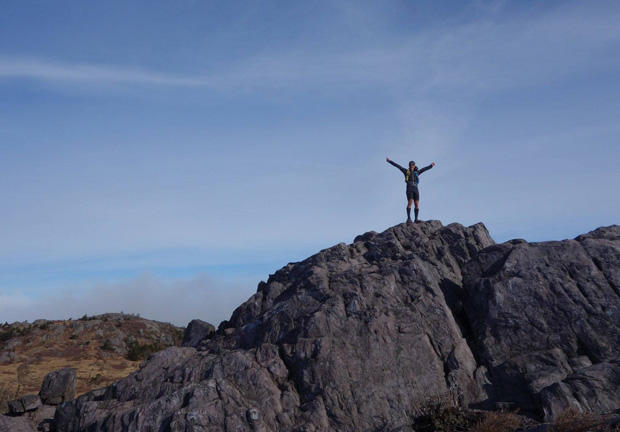
ST: Are you talking about the race or the training run?
Jan: The race is in Patagonia and that will be a 100 miler, but this is just a run near Asheville.
ST: What is the name of that event in Patagonia?
Jan: It is called Ultra Fiord and it is a new race. As the name of the race suggests it runs along the shore of the fjords in Patagonia (southern tip of Chile) and crosses national parks, glaciers and mountains. I have seen the pictures and it looks very scenic. I have always wanted to go to Patagonia, but have never been, and now I will.
ST: What will follow after that one?
Jan: I will have another one in the mountains of North Carolina, and that one is called Quest for the Crest and it goes up and down Black Mountain and the Mount Mitchell crest, the highest peak on the East Coast. It is 50k but it has some incredible amount of climbing, apparently the most climbing for a 50k course.
ST: But you aren’t just running, you are doing swim-run events too.
Jan: I do that and also do a few alternative triathlon events, some of which include kayaking. I wanted to go back to do some more triathlons, but the new challenge seems to be the swim-run races. And I like doing them with my son.
ST: I believe you did Otillo last year. Was that the first swim-run you entered and how did you stumble upon it?
Jan: Well, I have been to Sweden before and like Sweden very much, and I love that concept of swim-run racing. It is a new growing sport and I wish it would get some momentum here in North America. A friend of mine and I scouted out an area in Michigan and will likely try that out with just a few folks. But yeah Otillo is an archipelago of many islands and you are running in a wetsuit and swimming with your running shoes, and it basically point to point. It is for teams of two and I did it with my son. It works out as a great connector for us. My son is very busy, and we arrange to meet for events like that. He was a very talented athlete, but he is now focused on his studies. But we connect through a race like this each year. Last year it was Otillo and this year we are doing a similar event in Scotland called Loch Gu Loch. We will actually swim Loch Ness and then we will be swimming and running through the highlands of Scotland. It is the same group that also puts up the Celtman event, which is part of that growing series of extreme triathlons. It started with Norseman, which I did way back in 2009. I applied for Celtman and Swissman but these events are becoming very popular and I did not get in either.
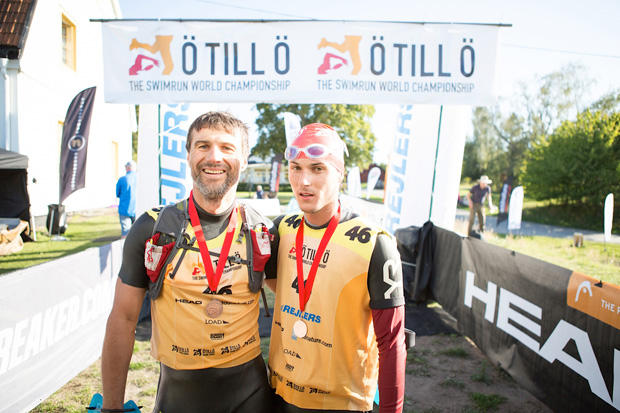
ST: Why do you think these more extreme events have not found more traction in North America?
Jan: Compared to Ironman events some of these races are maybe just not as commercially interesting, and these events typically require much more support. Plus the liability is likely higher and that is something Americans just can’t handle. Plus people are more interested in an M-dot logo and trying to find a place on their body to put it. The problem here also is that you likely would have to go to national parks to run this events and there are just too many restrictions within state parks. In Europe all that is much easier and I think here are more roadblocks for promoters.
ST: Well, do you have an Otillo tattoo?
Jan: No. I don’t think I will ever have any tattoos, because if I ever end up in a nursing home I don’t want to be laughed at.
ST: How did you and your son prepare for Otillo?
Jan: It turns out this area [North Carolina] is absolutely perfect for preparation with a series of state parks including in neighboring Virginia. So there are plenty of lakes and trails and we did loops there. That was awesome actually, and we also travelled all the way to Michigan to visit friends in Traverse City. We also fine tuned the equipment, and checked online what people were wearing and how they prepared, and it turned out we were perfectly prepared. Usually it is very hot here and then running in a wetsuits would be tough, but our summer was cooler and that made it perfect. We also found an island in Michigan and we did an 8-hour session of swimming and running and my wife and our friend followed us in kayaks, took pictures and drank some beer. There was a lot of bonding because we did a lot of training together.
ST: Talk about your son.
Jan: My son is now living in Slovakia. He grew up in the United States and went to UNC Chapel Hill, and actually ran for UNC, but then he decided to follow his sweetheart to Slovakia and is going to medical school there. He is slowly picking up his running again after hating it after his college experience. He was a triathlete, swimmer and cyclist but it was replaced by school. He was burned out on sports, and I am hoping he will find his passion for it again. We started doing events together when he was 18 and we did TransAlp on the bikes, which takes place in your part of the world. That was super cool, and he is a much better cyclist than I and was kind of riding circles around me. But it was inspiring to him. Then the next year we ran TransRockies, and the following year [2013] it wasn’t a race but we climbed the Cima Di Bianca. Now this year we are going to do 2 events. We will try to run the John Muir trail and then do the Loch Gu Loch.
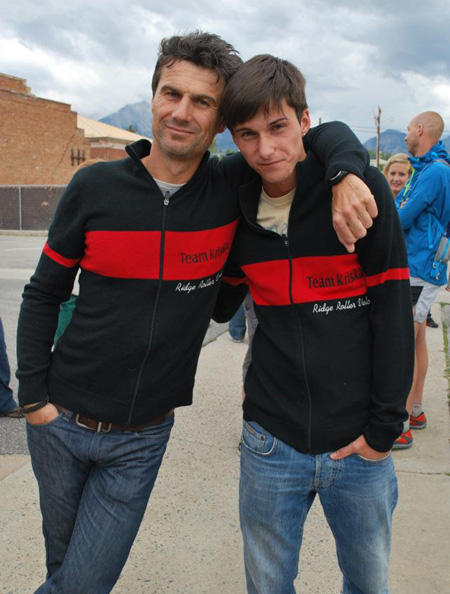
ST: Is he training for Loch Gu Loch?
Jan: Oh yes, he is running and he really does not need to work on his swimming as he is such a good swimmer. But he needs to run because he struggled at Otillo towards the end.
ST: Is there a specific event you really want to do?
Jan: Most of my check marks are made, but I have an ever-growing list of events I would like to do. Should my life end today I think I could say I have done everything I wanted to do. UTMB [Ultra Trail Mont Blanc] is how it all started or what got me interested in trail running and I still have not done it, but I have done plenty of other events like it. But yes, I would not mind checking that one off. I would also like to do Celtman, Swissman and the Inferno triathlon. Plus I would like to enter Embrunman, the Alpe D’Huez triathlon and in general come back to triathlon. I believe in trail running you only have a limited span of time to compete in those types of events and I have maybe another year or two. But mostly I don’t want to put any events in front of me that I am not going to be able to fulfill.
ST: Before we let you go, please tell us about your farm, the animals and what it takes.
Jan: Raising animals takes time and decreases you flexibility. Our farm has garden variety of creatures and every species has their specifics. Goats, sheep they are self sustained for most part. They need deworming, help with birthing, shearing and harvest (butchering etc.) bottle feeding. Other animals like chickens and ducks need feeding 2 a day. Rabbits need twice a day feeding and cleaning of the cages every so often. On average it is 1-2 hours of work a day. Thankfully Maria [his wife] is doing most of it. I am occasionally helpful.
ST: Can you also talk about your diet?
Jan: I had changed my diet over the last 10 years. My wife is gluten intolerant and that way I am eating less wheat product. We have eliminated starches from the diet long time ago (grains) I still eat them but lesser amounts. I also eat less food as I train. That makes my body to rely on my fat stores and make me to be able to last longer (diesel)
We are self sustained on our meat and almost self sustained on our vegetables. Preparation of the food – grilling, stir frying, olive oil.
ST: Well we wish you a great summer and a good time at Loch Gu Loch.
Jan: Thank you, I appreciate it.
